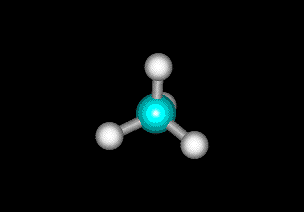 Thermodynamics and
Kinetics
Thermodynamics and
Kinetics
Chemistry 371

Class Meetings:
M,T,W,F 9:00 AM: Nobel 305
Chemistry seminars: Fridays 3:00 PM
Tentative Schedule
Instructor:
Prof. Jonathan M. Smith jmsmith@gustavus.edu
Nobel 106A
933-7321
Statistical Thermodynamics: HyperChem
Excel Worksheet
Physical Chemistry Forum: PChem Forum You must register but your password is your regular password
Laboratory:
![]() Week1: Computational Study of Heats of Formation and Combustion
of Hydrocarbons
Week1: Computational Study of Heats of Formation and Combustion
of Hydrocarbons
![]() Week 2: Spectroscopic
and Theoretical Determination of Flame Temperature
Week 2: Spectroscopic
and Theoretical Determination of Flame Temperature
![]() Week 3-4: Computational
and Experimental study of isomerization in NN-dimethylacetamide (DMA) its
derivatives
Week 3-4: Computational
and Experimental study of isomerization in NN-dimethylacetamide (DMA) its
derivatives
Weeks 5-9
![]() Bomb Calorimetry
and Determination of Resonance Energy of Benzene
Bomb Calorimetry
and Determination of Resonance Energy of Benzene
![]() Determination
of the Heat of Vaporization of Various Liquids
Determination
of the Heat of Vaporization of Various Liquids
![]() Solution
Kinetics of an SN2 reaction
Solution
Kinetics of an SN2 reaction
![]() Kinetics
of a Diffusion Controlled Reaction as Measured by Fluorescence Spectroscopy
Kinetics
of a Diffusion Controlled Reaction as Measured by Fluorescence Spectroscopy
![]() Independent Laboratory Investigation
Independent Laboratory Investigation
:Week 8 Proposal; Week 10 + Project
![]() Gustavus
NMR Tips
Gustavus
NMR Tips
 Atkins:
Physical Chemistry Web Notes
Atkins:
Physical Chemistry Web Notes
Exam Solutions:
Fall 2000
Fall 1999
Problem Sets:
Working problems is essential to the mastery of the material in physical chemistry. Problem sets will be assigned and collected each Monday. Quizzes on the problem set material will be given on Fridays. Study groups will be formed to work through specific problems assigned to the group. Select groups will present the solution of a problem during Friday class session prior to the quiz. Discussion should include all the details of the problems solution as well as solving techniques. The whole class will be responsible for these problems as well. Problem sets will be due on Mondays. While discussing problem sets is encouraged, the turned in homework solutions must be your own work.
Fall 1999
Problem Set #2, Problem Set #3, Problem Set #4 , Problem Set #5, Problem Set #6, Problem Set #7, Problem Set #8
Problem Set #9 Problem Set #10 Problem Set #11 Problem Set #12 Problem Set #13
Text:
Peter Atkins, Physical Chemistry, Sixth Edition, Freeman, New York, 1998.
James R. Barrante, Applied Mathematics for Physical Chemistry, Second Edition, Prentice-Hall, Upper Saddle River, NJ, 1998.
Brown, Guy C., The Energy of Life: The Science of What Makes Our Minds and Bodies Work, Free Press, 2000.
Laboratory:
Experimentation plays an integral role in the course. The laboratory offers the opportunity to put your conceptual understanding of the subject to work. There will be two laboratory sections on afternoons starting at 1:30 PM. Each investigation will require careful preparation including preparing your notebook and reading the material in the handout as well as any literature articles required for the investigation. Careful record keeping in a laboratory notebook is critical to this laboratory work. Notebooks will be collected at the end of the semester and checked for completeness. Written questions, tabulated experimental data, and data (including recorded spectra) will be turned in (hard copy or electronic) one week following completion of an investigation. During the semester, two investigations of your choice will be written in a formalized manner that will include a detailed discussion involving the chemical literature that relates to your investigation. For the first of these reports, you will turn in a draft, due October 25, which will be revised for the final draft.
Grading:
Several components figure into the final grade including
participation and the writing of two formalized laboratory reports. Chemistry 371 is a “W” course and we will
work on writing. One of the three exam grades will be dropped. Exams will be given during class and may
include a take-home portion.
|
Homework, Quizzes, & Participation |
|
|
(50 each) |
150 |
|
Hour Exams: (3 @100) |
200 |
|
Final |
150 |
|
Laboratory Notebook |
50 |
|
Laboratory Reports |
75 |
|
Formal Reports (2) |
150 |
|
|
775 |
exam dates:
Final exam:
Overview
Physical
chemistry is the quantitative interpretation of the macroscopic properties of
matter informed by a detailed understanding at the atomic and molecular
level. Physical chemistry is an
exciting field with important connections to topics as diverse as protein
folding to the ozone hole to rational drug design and to organic
synthesis. Thermodynamics is a subject
that quantifies the stability of macroscopic systems, the flow of energy
between macroscopic systems, and the ensuing transformations that occur. Critical to thermodynamics is the concept of
entropy and the second law of thermodynamics lays out its role in the
spontaneity of chemical processes.
Thermodynamics can be applied to chemical systems without knowledge of
the underlying molecular properties.
Physical chemistry unifies the laws of thermodynamics that predict the
likelihood of chemical transformations, chemical kinetics that indicate how
fast a chemical transformation will occur and adds the insights gained at a
molecular level to make solid predictions of the chemistry of matter. In this course, we will study the
application of thermodynamics and kinetics to chemical systems providing an
important foundation for the understanding of chemical and biochemical systems.